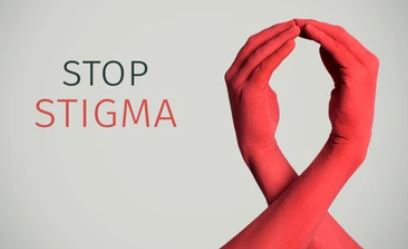A Juba-based civil society activist, Peter Garang, who doubles as the Executive Director of the Network of AIDS Service Organizations of South Sudan (NASOSS) has called on the Government of South Sudanese to take decisive action to end the pervasive stigma and discrimination against people living with HIV/AIDS.
During a recent event to commemorate World AIDS Day, Garang highlighted the alarming rates of stigma and discrimination, citing instances of people being evicted from their homes, denied employment, and even driven to suicide after testing HIV positive.
“We have reports of people being chased away from homes after being tested positive. We have reports of people who committed suicide in Warrap State and Malakal Town after being tested HIV positive,” he said. “Why? Because of the rising and high stigma and discrimination.”
Garang also called on the government to increase funding for HIV/AIDS programs and to hold accountable those who perpetuate stigma and discrimination.
“We need to be aggressive in removing social barriers, in ending discrimination, in ensuring that every person in this country, whether young or old, has access to HIV services,” he stated.
The civil society activist emphasized the importance of addressing the root causes of HIV/AIDS, including poverty, gender inequality, and lack of education.
He urged the government to prioritize public health and to invest in programs that promote prevention, treatment, and care.
“We need to commit, as a government of this country, to start funding AIDS services, to start funding health-related services, because that is cost-effective and it is only if you have a healthy population that you can tax them,” Garang said.
For his part, Lole Laila Lole, Coordinator of the South Sudan Network for People Living with HIV, called for action that requires government and partners’ support on financing for HIV response.
“The current financing remains a significant constraint with less than 1 percent of the national budget allocated to HIV response.
“We advocate for domestic funding through a proposed system that allocates a percentage of national taxes towards national HIV programming,” he said
Lole explained that human rights violations such as stigma, discrimination, and lack of access to justice are also major barriers preventing people living with HIV from accessing necessary services.




